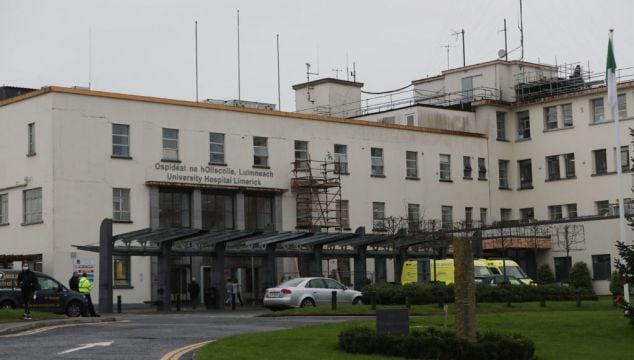A report into the University Hospital Limerick emergency department said staff were being asked to work on 130 separate recommendations and that it was a “huge burden” for already over-stretched workers.
It also said too many diagnostic tests were being ordered, partly because of fears about compensation claims, and dozens of patients were waiting more than 28 days for discharge.
A review of the effectiveness of the emergency department said that while it was “admirable” to try and address all the failings at UHL’s A&E, change had to be realistic.
The report, finalised earlier this year, said the emergency department had been the subject of “many previous inspections and reviews”, with so many recommendations that it was hard to keep track.
It said: “These vary between small simple tasks to much larger and complex tasks. We are concerned that this is a huge burden for an already stretched staff and managerial group.”
The report, prepared by four senior clinicians led by Dame Marianne Griffiths, said it might make more sense to “prioritise the recommendations” and pick out those that were “an inch wide and a mile deep” rather than the reverse.
The authors said they had been “genuinely impressed” by the staff working at UHL, especially given the “relentlessness of the challenges faced in ED and the wards”.
In discussions, staff said many of the problems in the hospital stemmed from “cultural issues” in improving access and quality in the emergency department.
It said: “The cultural issues are seen to focus on the medical take and related practices and a real frustration that sub-optimal processes are 'normalised' and allowed to continue.”
The report said there was a “strong view” that the number of people being admitted after attending the ED was too high.
It also detailed how too many patients were getting into the “congested site” of the emergency department when they could be safely treated elsewhere.
It said: “A primary care physician at the front door similar to other acute models would again take an amount out of ED and avoid a number of referrals.”
The authors of the report also said the acute medical unit (AMU) at UHL did not “function effectively”.
It said there were three physicians allocated to “acute medicine” slots but that they had patients all over the hospital to take care of as well.
The report said: “There does not appear to be an effective way to identify patients who may have a short stay and prioritise them to the AMU.”
It was critical as well of how patients on some wards were being looked after by different consultants “negatively impacting on efficiency and length of stay".
The report said: “Multiple ward rounds meant that nursing staff were not able to join the rounds consistently and decisions for patients are being delayed significantly whilst awaiting consults, safari rounding etc.
“This could also have a detrimental effect on the quality and safety of the patients.”
It said on some occasions more than twelve different consultants could be visiting a ward searching for patients and that this was “hugely inefficient”.
The report was critical of how discharges were managed at the hospital with 166 patients waiting more than 10 days and 50 waiting more than 28 days to be let home.
“We discussed this with the team and were informed that sometimes there was a reluctance to give a medically fit for discharge date and that many of these patients were actually 'true' delayed discharges,” said the authors.
“This is troubling as it does not make the delayed discharge problem visible, but it also suggests that the 'discharge culture' is not where it should be.”
It said systems needed to be better focused on getting patients well and back home as quickly as possible.
The report also said there was a very high rate of referrals for diagnostic tests at the hospital partly due to fear of litigation and “risk appetite of current clinical practice”.
It said: “However, over-investigating can cause stress and delay for patients and can result in longer lengths of stay…excess investigations do not represent value for money either for the patient or the public purse.”







